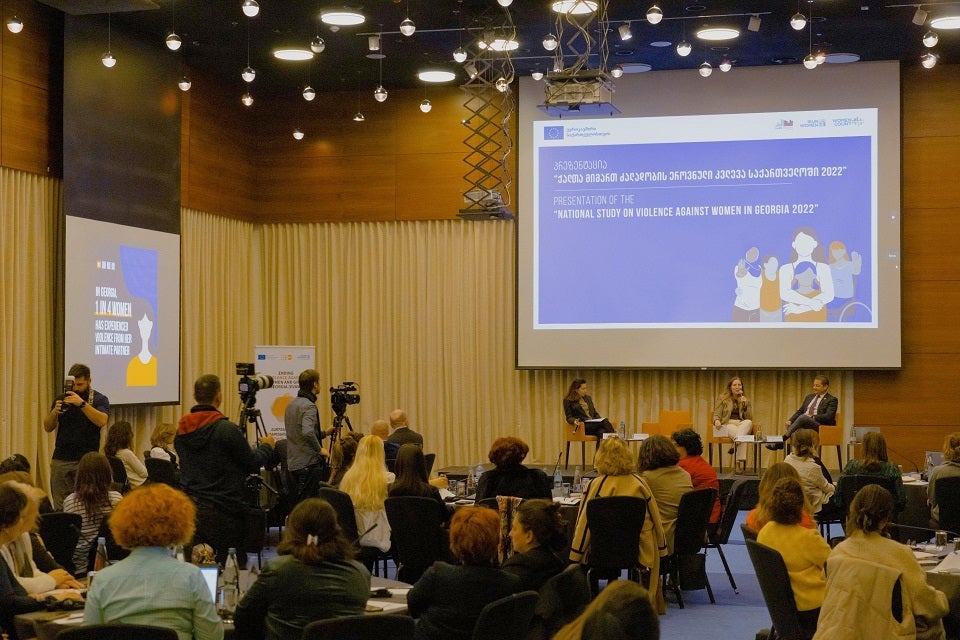National Study on Violence against Women: Results and trends
Date:

Every second woman in Georgia has experienced at least one form of violence during her life, and every fourth woman has experienced sexual harassment. The National Study on Violence against Women, which was presented by UN Women and the National Statistics Office of Georgia (Geostat) with the support of the European Union, studied the extent of the spread of psychological, physical, sexual and economic forms of violence, as well as the incidents of sexual harassment, stalking and violence experienced in childhood.
Representatives of state agencies and local and international organizations working on issues of violence against women and girls and domestic violence attended the study presentation. When presenting the results, it was noted that every fourth woman in Georgia was a victim of violence directly from her partner. Moreover, 24 per cent of women have experienced psychological violence; 8 per cent, economic violence; 6 per cent, physical violence; and 4 per cent, sexual violence.
The National Study on Violence against Women also analysed public attitudes: in Georgia, fewer and fewer people believe that violence between a husband and wife is a private matter, although 21.4 per cent of women and 37.2 per cent of men still think that they should not interfere in other people’s family affairs. In addition, the share of women who say that a woman’s most important role is taking care of her family has also decreased: if in 2017 this figure was 65.8 per cent, now it is 59.9 per cent. As for men, their attitudes have also changed slightly: in 2017, 78 per cent said that a woman’s most important role is taking care of the family, and now 74.7 per cent think so.
Along with getting acquainted with the research results, the participants of the presentation discussed the steps that should be taken in the legislative and political arenas to eliminate violence against women. “The study is an important step to overcoming violence against women. Its findings and data-based evidence will help us develop the policy and legislative initiatives needed to address this pervasive problem,” said Sabine Machl, UN Resident Coordinator in Georgia.
Jurate Juodsnukyte, EU Delegation Attaché and Programme Manager, added: “It is important for the European Union to support work in the area of violence against women in Georgia. Conducting a national study on violence against women and regular data collection shows that Georgia is taking important steps to fulfil its obligations under the Istanbul Convention.”
As part of the study, fieldwork was conducted in October and November 2022, and a total of 3,300 women and 1,104 men were interviewed in Tbilisi, other cities and villages. The quantitative component was carried out in cooperation with Geostat, and the qualitative component was provided by the team at WeResearch. The study examined the prevalence of different forms of violence against women, its impact on women’s health and well-being, the extent to which they have information about the services available to victims of violence and whether they use these services, and what are the public’s attitudes towards violence against women, its causes and consequences and the ways to prevent it.
The National Study on Violence against Women was carried out by UN Women together with Geostat with the support of the European Union, within the framework of the project “Ending Violence against Women and Girls in Georgia”. The study is supported by UN Women’s regional programme Making Every Woman and Girl Count.